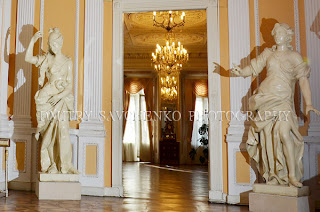World Heritage Historical Monuments
Heritage is our legacy from the past, what we live with today, and what we pass on to future generations. Our cultural and natural heritage are both irreplaceable sources of life and inspiration.
Общее·количество·просмотров·страницы
понедельник, 29 декабря 2014 г.
воскресенье, 5 января 2014 г.
The Royal Łazienki
a new active page of my website :
The Royal Łazienki, The Royal Summer Residence
of king Stanislaw August Poniatowski,
Muzeum Łazienki Królewskie
" Noblesse" project ( "Royal families", "House of Poniatowski" )
четверг, 2 января 2014 г.
Wilanów Palace (Pałac w Wilanowie)
a new active page of my website :
" Noblesse" project ( "Royal families", "House of Sobieski" )
воскресенье, 9 июня 2013 г.
oil painting by Dmitry Savchenko, acryl, canvas, mixed technique
a new active page of my website
OIL PAINTING, ACRYL, CANVAS, MIXED TECHNIQUE
четверг, 30 мая 2013 г.
Korniakt Palace
From Wikipedia, the free encyclopedia
 The Korniakt Palace (Ukrainian: Палац Корнякта (Palats Korniakta), Polish: kamienica Królewska we Lwowie) on Market Square in Lviv is a prime example of the royal kamienica, or townhouse. The fabric of the palace is of various dates. It was originally built by architect Piotr Barbon for merchant Konstanty Korniakt, a champion of Greek Orthodoxy and co-founder of the Lviv Dormition Brotherhood. Construction of this severely elegant Renaissance palazzo was completed in 1580.
The Korniakt Palace (Ukrainian: Палац Корнякта (Palats Korniakta), Polish: kamienica Królewska we Lwowie) on Market Square in Lviv is a prime example of the royal kamienica, or townhouse. The fabric of the palace is of various dates. It was originally built by architect Piotr Barbon for merchant Konstanty Korniakt, a champion of Greek Orthodoxy and co-founder of the Lviv Dormition Brotherhood. Construction of this severely elegant Renaissance palazzo was completed in 1580.
After Korniakt's death in 1603, King Wladyslaw IV Vasa stayed at his palace. He got smallpox and recovered here. In 1640, the edifice was purchased by Jakub Sobieski and was later inherited by his son, King Jan III Sobieski. The Polish-Lithuanian ruler remodelled it into a palatial residence, with spacious rooms and an audience hall where he signed the Eternal Peace Treaty of 1686.
In 1908, the Sobieski Palace became home to the Jan III museum. It is now part of the Lviv History Museum. The royal chambers are used for exhibiting Rococo furniture and clocks, a collection of medallions, and precious silverware.
VIEW MORE
DMITRY SAVCHENKO ART PHOTOGRAPHY
вторник, 28 мая 2013 г.
PIDHIRTSI CASTLE
From Wikipedia, the free encyclopedia
Pidhirtsi Castle (Ukrainian: Підгорецький замок; Polish: zamek w Podhorcach) is a residential castle-fortress located in the village of Pidhirtsi in Lviv Oblast (province) western Ukraine, located eighty kilometers east of Lviv. It was constructed by Guillaume Le Vasseur de Beauplan between 1635–1640 by order of the Polish-Lithuanian Commonwealth's Grand Crown Hetman Stanisław Koniecpolski, on the place of the older fortress. The castle was then part of the Kingdom of Poland and it is regarded as the most valuable of palace-garden complexes in the eastern borderlands (Kresy Wschodnie) of the former Polish-Lithuanian Commonwealth.
HISTORY
It has not been established who designed the complex, that, most probably, was planned by Italian architect Andrea del Aqua, who also designed the fortress in nearby Brody for bellicose Koniecpolski. Hetman Koniecpolski wrote in his memoirs that he wanted to own a place for relaxation, but the castle location made it impossible. In 1648 it was attacked by Ukrainian Cossacks during Khmelnytskyi Uprising, although they could not capture the complex, what proved its fortress characteristcs. Three years later the Cossacks returned and failed again. After this event, Koniecpolski's son Aleksander repaired damages and strengthened the fortification improving security credited to resisting numerous Tatar and Turkish inroads that took place in a period of second half of 17th century.
In 1682, Stanisław Koniecpolski, grandson of the original builder and owner, decided to devise the castle with surrounding estates to Jakub Ludwik Sobieski. Five years later, Jakub Sobieski coming back from the campaign against the Ottoman Turks at Kamieniec Podolski hosted his parents, King Jan III Sobieski and his French wife Marie Casimire Louise, in the castle. A description of the Podhorce complex made by one of Sobieski's courtiers, François d’Aleyrac, has been preserved: "This castle is undoubtedly the most beautiful in Poland, and in other countries, it would also be regarded unique."
In 1725 Konstanty Sobieski, younger brother of Jakub, sold the castle to the Great Crown Hetman Stanislaw Rzewuski. After hetman Rzewuski's death, the complex was inherited by his son, Wacław, who also was the owner of the nearby Olesko Castle. Wacław Rzewuski made Podhorce his permanent residence. He ordered that a third floor to be added as well as a church (1788); he opened a theater.
Wacław Rzewuski was vividly interested in all things connected to King Jan III Sobieski. He purchased such items as Sobieski's sword used in the Battle of Vienna, booty taken by the king after the battle as well as a marble table on which, according to the legend, Sobieski was baptized.
VIEW MORE
DMITRY SAVCHENKO ART PHOTOGRAPHY
Подписаться на:
Сообщения (Atom)

















